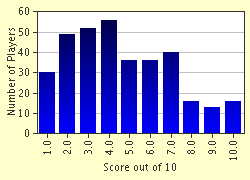Quiz Answer Key and Fun Facts
1. Pooh likes to use the technique of feigned ignorance, in order to make people clarify their own thoughts. Which other philosopher used this technique?
2. Pooh writes a song with the line "I'll have a little something in an hour or two" but then abandons it, because the last line will soon stop being true, when it becomes time for the Little Something. Which other philosopher had similar views on poetry?
3. Christopher Robin's quest for Education, towards the end of "The House at Pooh Corner" is in stark contrast with Pooh's outlook. Pooh is clearly not an educated Bear, knowing nothing about Kings and Queens, Knights, Europe, Factors or Suction Pumps. However, he does have an inborn wisdom, and an ability to do the right thing. Which European philosopher also described this innate wisdom?
4. Pooh's world is peaceful and happy, despite there being no ruler, leader, government or laws. The animals work together in the Search for Small and in the quest for the North Pole, and generally treat each other with respect, kindness and love. This is a direct contradiction of which philosopher, who believed such a world was not possible?
5. Pooh takes a jar of honey to put in the Cunning Trap for Heffalumps. However, he decides to check first that it is really honey. "It had HUNNY written on it, but just to make sure, he took off the paper cover and looked at it, and it looked just like honey. 'But you never can tell,' said Pooh. 'I remember my uncle saying once that he had seen cheese just this colour.' So he put his tongue in and took a large lick." He proceeds to taste right down to the bottom of the jar, in case "somebody put cheese at the bottom just for a joke." Which philosophical tradition is Pooh illustrating here?
6. Casual readers may think that Pooh's birthday gift to Eeyore of an empty pot may be careless, or selfish (Pooh having first eaten the honey contained in it.) However, Pooh states several times that this will be a Useful Pot to keep things in, and Eeyore is delighted with his gift. Which philosopher would heartily agree that a Useful Pot is an ideal gift?
7. There are several situations in the Pooh stories where Pooh, and indeed the other characters, use the principle of Falsifiability to test a hypothesis. Pooh uses this when he tastes the honey to make sure it isn't cheese, and when he tests whether a jar can float. Piglet uses it when he checks the trap for Heffalumps, and Tigger uses it while searching for Breakfast. Which philosopher inspired their reasoning?
8. At the beginning of "The House at Pooh Corner", Pooh visits Piglet, but "to his surprise he saw that the door was open, and the more he looked inside, the more Piglet wasn't there." Which philosopher used a very similar example to illustrate his theory of alienation and Nothingness?
9. Pooh is not only an expert in Western philosophy. He is also a perfect illustration of some Eastern principles. Which philosophy includes the principle of P'u, which not only sounds like Pooh, but also describes him?
10. Another feature of the philosophy in question 9 is illustrated perfectly by Pooh, who achieves success when he acts spontaneously, without thinking. He finds his way out of the mist by listening to "twelve pots of honey in my cupboard... calling to me." What principle best describes this ability?
Source: Author
Elanor
This quiz was reviewed by FunTrivia editor
coolupway before going online.
Any errors found in FunTrivia content are routinely corrected through our feedback system.

